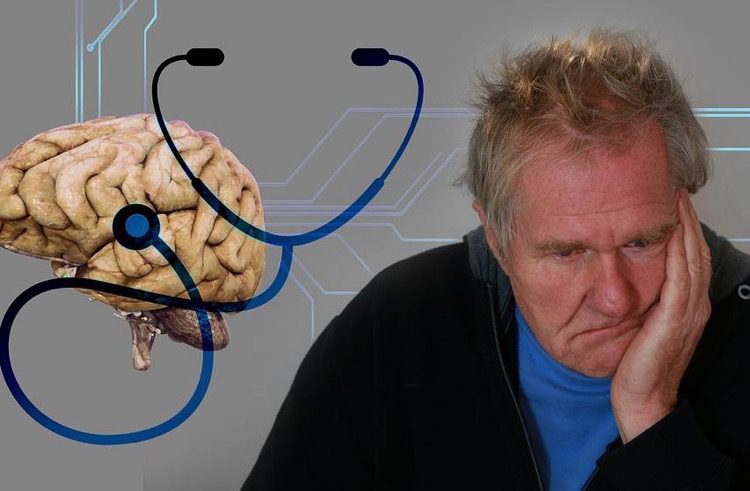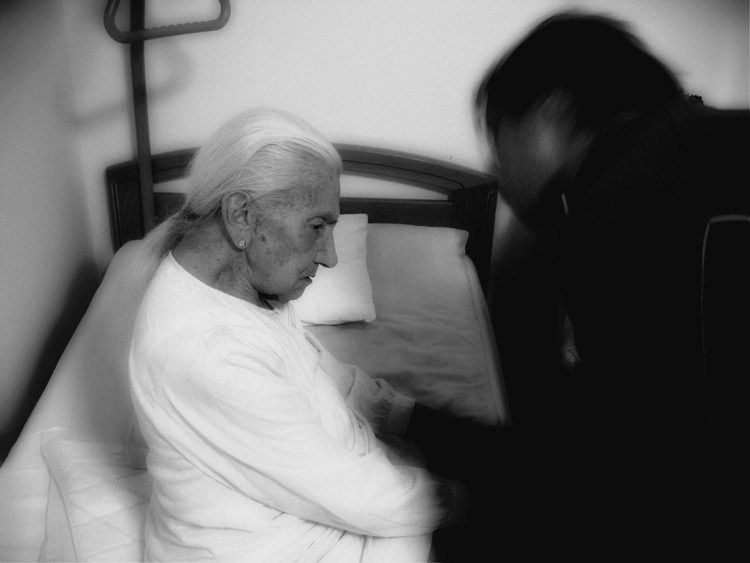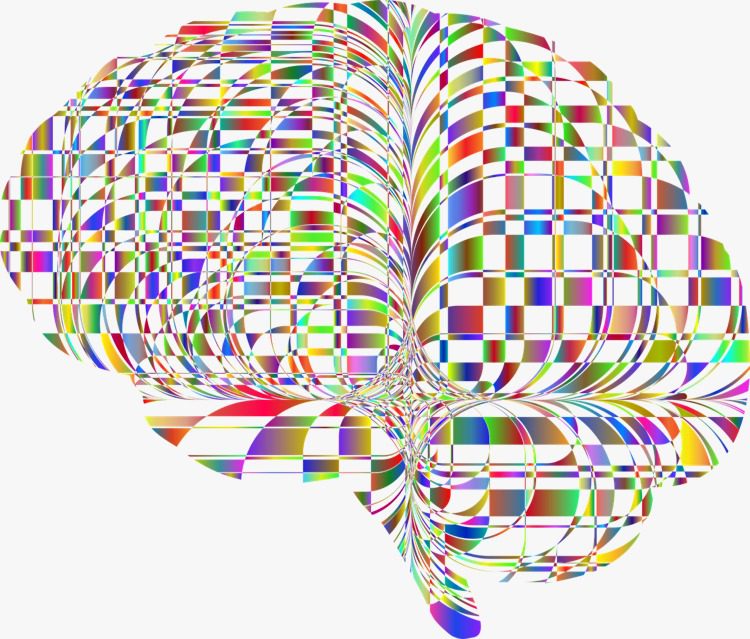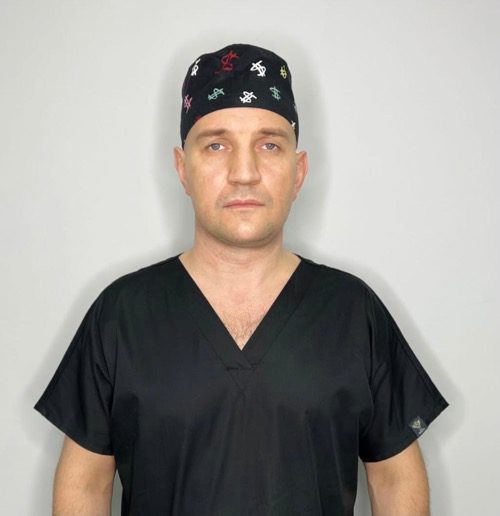Treatment of Alzheimer’s disease with stem cells in Kiev
Treatment of Alzheimer’s disease is the treatment of a disease that perhaps everyone has heard of. A conscious attitude to its consequences and treatment is of great importance for the residents of Kyiv and the whole of Ukraine.

Statistics show that the risk of developing this disease increases with age, and with an ageing population, the problem is becoming more widespread. Awareness of diagnostic methods and modern approaches to treatment at facilities such as Coolaser Clinic is key, not only for potential patients, but also for their families who face the challenges of caring for patients. The importance of early diagnosis and effective treatment cannot be underestimated as it can significantly slow the progression of the disease and improve patients’ quality of life.

Content:Content:
- What is Alzheimer’s Disease?
- How Alzheimer’s differs from dementia
- Alzheimer’s disease: what is it?
- Symptoms of Alzheimer’s disease
- Signs of Alzheimer’s
- Causes of Alzheimer’s
- Diagnosis of Alzheimer’s disease at Coolaser Clinic
- Investigations for suspected dementia
- Alzheimer’s disease: stem cell treatment in Kiev
- Stem cells for the treatment of Alzheimer’s
- Detailed-plan-for-alzheimer’s-disease-treatment-in-coolaser-clinic
- Disease Prevention
- FAQ Frequently Asked Questions
What is Alzheimer’s disease ?
Alzheimer’s disease is an untreatable neurodegenerative disease that primarily affects the parts of the brain responsible for memory and thinking skills. As it progresses, it leads to severe dementia, as a result of which a person gradually loses the ability to live independently. What distinguishes Alzheimer’s from other types of dementia are biochemical and morphological changes in the brain, such as the formation of beta-amyloid plaques and neurofibrillary bundles, which lead to the death of neurons.

Alzheimer’s syndrome combines symptoms associated with cognitive impairment, behavioural changes and deterioration in the ability to perform daily tasks. For the families of patients, this becomes a great challenge, as the deterioration of a loved one requires not only moral but also physical support, often for many years.
How Alzheimer’s differs from dementia
Alzheimer’s disease is a form of dementia, but it is important to understand the differences. Dementia is a general term for symptoms of cognitive decline that affect memory, thinking and social abilities so severely that they interfere with daily life.
Unlike Alzheimer’s disease, which is a specific disease and the most common cause of dementia, dementia can be caused by a variety of diseases and conditions such as stroke (vascular dementia), Parkinson’s disease or Huntington’s disease.
Alzheimer’s disease is characterised by a gradual onset and a slow but steady progression. While other types of dementia may have a sudden onset or fluctuating course. In addition, short-term memory is particularly affected in the early stages of Alzheimer’s, while other forms of dementia may initially manifest themselves in different ways, such as changes in mood and behaviour or coordination difficulties.
To accurately diagnose and determine the type of dementia, it is necessary to undergo an examination, which includes medical tests and brain scans that can reveal characteristic signs of Alzheimer’s, such as atrophy of certain areas of the brain.
Alzheimer’s disease: what is it?
Alzheimer’s syndrome is a set of clinical manifestations due to Alzheimer’s disease, the most common form of dementia. This syndrome is characterised by a gradual loss of cognitive function, resulting in impaired memory, thinking and ability to perform routine tasks. In the initial stages, there may be difficulty in remembering new information, and over time, difficulties with speech, comprehension, decision-making and spatial orientation develop.

A neurological examination, including assessment of memory, problem-solving abilities and other aspects of cognitive function, allows doctors to diagnose the syndrome. Behavioural and mental changes such as apathy, depression, social withdrawal, anxiety and even hallucinations or paranoia can also accompany Alzheimer’s syndrome. It is important to note that Alzheimer’s syndrome and Alzheimer’s disease are sometimes used interchangeably, but syndrome usually refers to a set of symptoms rather than the disease itself.
Symptoms of Alzheimer’s disease
The symptoms of Alzheimer’s disease are gradual and worsen over time. The disease usually begins with mild episodes of forgetfulness, especially of recent events or information. As the disease progresses, difficulties with speech, writing and performing mundane tasks appear. Important signs are also:
- Confusion in time and space: Patients may get lost even in familiar surroundings or forget the current time of year.
- Difficulties with abstract thinking: Problems with understanding numbers, banking, or planning.
- Impaired judgement: For example, dressing inappropriately for the weather or inappropriate behaviour in social situations.
- Changes in mood and behaviour: Sudden mood swings for no apparent reason, increased irritability or apathy.
- Decreased initiative: Loss of interest in habitual activities or hobbies, refusal of social contacts.

These symptoms can seriously interfere with patients’ daily lives and require the attention of loved ones and healthcare professionals to provide adequate care and support.
Signs of Alzheimer’s
a chart of the signs of Alzheimer’s disease:
| Disease Stage | Signs. |
| Early stage | Forgetfulness, difficulty remembering new information, losing things, trouble planning and doing familiar tasks |
| Middle stage | Difficulties with speech, reading and comprehension, confusion about time and space, impaired judgement, behavioural and mood changes |
| Late stage | Significant memory loss, swallowing problems, changes in gait, need for help with daily activities, total dependence on the help of others |
Note that the onset of symptoms and the rate of progression of the disease can vary greatly from patient to patient.

Causes of Alzheimer’s disease
| Фактор | Description. |
| Genetic predisposition | Having certain genetic mutations can increase the risk of developing the disease, especially if the disease has run in the family. |
| Age | The risk of developing Alzheimer’s disease increases with age, especially after age 65. |
| Vascular factors | Hypertension, high cholesterol and diabetes can contribute to the development of Alzheimer’s disease. |
| Lifestyle | Lack of exercise, poor diet, smoking and excessive alcohol consumption can increase the risk. |
| Head injuries | Head injuries can increase the likelihood of developing the disease later in life. |
Note that these factors are not direct causes, but they do increase the risk of developing the disease. To date, the exact causes of Alzheimer’s disease remain incompletely understood, and research in this area is ongoing.
Diagnostics of Alzheimer’s disease in Kiev
Benefits of early diagnosis of Alzheimer’s disease:
- Early initiation of treatment: Early diagnosis allows treatment to be started at an early stage of the disease, which can slow its progression.
- Planning for the future: Patients and their families can better plan for their future, including care and possible lifestyle changes.
- Participation in clinical trials: Patients can access new therapies through participation in clinical trials.
- Psychological support: Early diagnosis provides psychological support and social services for patients and their families.
How can early diagnosis help?
- Optimisation of treatment: The ability to use medicines and approaches that are most effective in the initial stages.
- Prevention of complications: Timely detection and prevention of possible complications of the disease.
- Patient and Family Education: Teaching caregiving skills and adapting to changes in the patient’s behaviour and abilities.
Investigations for suspected dementia

- Computed tomography (CT) scan: Used to rule out other causes of symptoms such as tumours or strokes.
- Magnetic resonance imaging (MRI): Gives more detailed images of the brain, can detect changes associated with Alzheimer’s.
- Electroencephalography (EEG): Can be used to assess the electrical activity of the brain.
- Electrocardiography (ECG): Sometimes performed to rule out heart problems that may affect brain function.
- Ultrasound (ultrasound) of the thyroid gland and others: Performed to rule out thyroid disease that may be causing symptoms of dementia.
Alzheimer’s disease: stem cell treatment in Kiev
Этапы лечения
- Consultation and examination: The clinic doctors collect a medical history, perform the necessary diagnostic tests to confirm the diagnosis and determine the patient’s suitability for the procedure.
- Stem cell preparation: Stem cells can be derived from a variety of sources, including bone marrow, peripheral blood or adipose tissue from the patient. They can also be cultured and modified in the laboratory before use.
- Stem cell administration: Stem cells can be administered to the patient in a variety of ways, such as through intravenous infusions, spinal cord injections, or directly into the brain.
- Monitoring and rehabilitation: After stem cell administration, the patient is closely monitored for any side effects or response to treatment. Rehabilitation treatments may focus on supporting cognitive function and general health.
- Evaluation of efficacy: Follow-up examinations and cognitive function testing are performed regularly to assess the efficacy of therapy.

Stem cells for Alzheimer’s treatment
General information about stem cells:
Stem cells in simple terms are cells that have the potential for self-renewal and the ability to differentiate into different types of cells in the body. They can be embryonic, which have high differentiation potential and can give rise to any type of cell in the body, or adult (somatic), which usually have more limited differentiation capabilities. Stem cells can also be induced pluripotent stem cells (iPS cells), which are derived by ‘reprogramming’ ordinary cells in the body.

Mechanism of action of Stem Cells
- Replacing damaged neurons: Stem cells can differentiate into neurons and replace lost or damaged brain cells.
- Supporting existing neurons: Stem cells can secrete growth factors that help existing neurons survive and function.
- Modulation of inflammation: Stem cells may have anti-inflammatory effects, potentially slowing disease progression.
- Improving cerebral circulation: Stem cell injections can help form new blood vessels and improve blood supply to the brain.
A detailed plan for Alzheimer’s disease treatment at Coolaser Clinic

Stages of therapy:
- Initial consultation with a neurologist and assessment of the patient’s condition.
- Detailed medical examination, including laboratory tests and instrumental investigations.
- Development of an individualised stem cell treatment plan, taking into account the stage of the disease and the patient’s general state of health.
- The introduction of stem cells into the patient’s body according to a specially designed scheme.
- Regular monitoring and evaluation of the effectiveness of therapy with the possibility of adjusting treatment.
Prevention of the disease
Alzheimer’s disease prevention includes a number of measures aimed at reducing the risk of developing the disease and slowing its progression. The following are some of the most recommended prevention methods:

- Keeping mentally active:
Reading books, doing crossword puzzles, playing chess and other intellectual pursuits.
Learning new skills or hobbies that stimulate the brain.
- Healthy Lifestyle:
Regular exercise to help improve blood flow and metabolism in the brain.
A balanced diet rich in fruits, vegetables, whole grains and omega-3 fatty acids.
Maintaining a healthy weight, controlling cholesterol and blood pressure levels.
- Abandonment of bad habits:
Smoking cessation and moderate alcohol consumption.
- Социальная активность:
Maintaining social ties, socialising with friends and family.
Participation in social activities and interest groups.
- Disease Control:
Regular medical monitoring and treatment of comorbidities such as diabetes, hypertension, cardiovascular diseases.
- Stress Management:
Relaxation, meditation, and yoga techniques to reduce stress levels.
- Quality sleep:
Adherence to sleep hygiene and strive for a full 7-8 hours of nightly rest.
- Regular medical examinations:
Regular visits to the doctor to assess cognitive function and identify possible early symptoms of cognitive decline.
These recommendations are based on current scientific research and can be adapted to each person’s individual circumstances. It is important to remember that although these measures may reduce the risk of developing Alzheimer’s disease, they do not guarantee complete protection against the disease.

FAQ Frequently Asked Questions
What are the different stages of Alzheimer’s disease?
The stages of the disease are usually divided into three main stages:
- light (early),
- moderate
- severe
How long does one live with Alzheimer’s disease?
Life expectancy after an Alzheimer’s diagnosis can fluctuate, but averages between 4 and 8 years. However, some patients can live with the disease for 20 years or more.
What are the causes of Alzheimer’s disease?
The exact causes of Alzheimer’s disease are not fully understood. Factors such as genetics, lifestyle and environment that may contribute to the development of the disease are discussed.
Is there a photo of the symptoms of Alzheimer’s disease
Photographs may not show direct signs of Alzheimer’s, as it is an internal brain disease. However, they may show people in characteristic situations that reflect behavioural symptoms of the disease.
Why and how do people die from dementia?
Death from dementia can occur due to various complications such as infections, airway obstruction, or problems with nutrition and hydration.
Question: Why do people with dementia often require constant care?
Dementia patients may experience cognitive decline, making it difficult to perform daily tasks and self-care, thus requiring constant care.
Where can I discuss the last stage of Alzheimer’s disease?
The final stages of Alzheimer’s disease, as well as other aspects of living with the disease, can be discussed in thematic forums where participants share their personal experiences and support each other.
What is discussed in the resource alzheimer’s disease final stage ( forum) ?
At the Alzheimer’s Disease Last Stage forum, participants share their experiences of caring for patients, discuss the challenges of the worsening condition and ways to alleviate patients’ suffering.
How long does one live with Alzheimer’s disease?
The answer to the question: how long do people live with Alzheimer’s disease varies, but the average is between 4 and 8 years, although some may live longer.
What are the early warning signs of Alzheimer’s disease?
Early signs of Alzheimer’s disease include forgetfulness, especially of recent events, difficulty performing familiar tasks, and problems with speech and writing.
What are the main causes of Alzheimer’s disease?
The main causes of Alzheimer’s disease include genetic factors, age, possibly environmental exposure, and lifestyle, although the exact mechanisms of the disease are still not fully understood.
What are the stages of Alzheimer’s disease?
The stages of Alzheimer’s disease include early stage, middle stage and late stage, each characterised by a specific set of cognitive impairments and behavioural changes.
What are the symptoms of Alzheimer’s?
Alzheimer’s symptoms can include forgetfulness, language problems, disorientation in time and space, decreased motivation, inability to independently cope with daily activities, mood and behavioural changes.
What is the average life expectancy after being diagnosed with Alzheimer’s?
The average life expectancy after a diagnosis of Alzheimer’s disease is an average of 4 to 8 years. In some cases, with a mild form and adequate care, patients may live longer.
How to treat Alzheimer’s disease: which symptoms have already appeared?”
Alzheimer’s disease, whose symptoms are already visible, is treated with medication to slow the progression of the disease. It is also necessary to influence the recovery of cognitive functions, as well as psychological and social support for both patients and their families.
Could there be other causes of Alzheimer’s disease causing similar symptoms?”
Yes, there are other diseases and conditions such as vascular dementia, dementia with Lewy bodies that can cause similar symptoms, so it is important to make a thorough diagnosis.
What is the difference between alzheimer’s and other types of dementia
Alzheimer is just one type of dementia characterised by the deposition of beta-amyloid plaques and neurofibrillary bundles in the brain. Other types of dementia may have different causes and pathological characteristics.
How to visually understand what alzheimer’s disease is (photo)?
Illustrations showing Alzheimer’s disease (photo), can be found in medical reference books, specialised training manuals, or on dementia awareness websites. They can depict both people and patterns of brain changes in the disease.
How important is it to spot alzheimer’s symptoms in time?
It is very important to detectAlzheimer’s symptoms early, as early diagnosis and initiation of treatment can significantly slow the progression of the disease, improve the patient’s quality of life and prolong their independence. It also allows time to plan for future care and treatment.
Calculate the cost for “Treatment of Alzheimer’s Disease”
Leave your details and we will contact you for an accurate surgery estimate

We invite you to Coolaser Clinic in the heart of Kiev at Pechersk, where highly qualified specialists and individual approach to each patient are waiting for you. Do not put off taking care of your health, trust us to help you live a full life, applying advanced techniques aimed at treating Alzheimer’s disease.
Author: Associate Professor, Candidate of Medical Sciences Dr. Kovalchuk
Specialists in the procedure

Kovalchuk Andrey
Associate Professor, surgeon, biotechnologist
Useful articles

Today we will talk about the treatment of metabolic syndrome with stem cells in Kiev Kiev is a city of European level and European opportunities. We all want to look […]

A detailed guide: how to treat Parkinson’s disease Many people wonder how to treat Parkinson’s Disease, what is it and what can be the consequences? Parkinson’s disease is a chronic […]
Reviews





